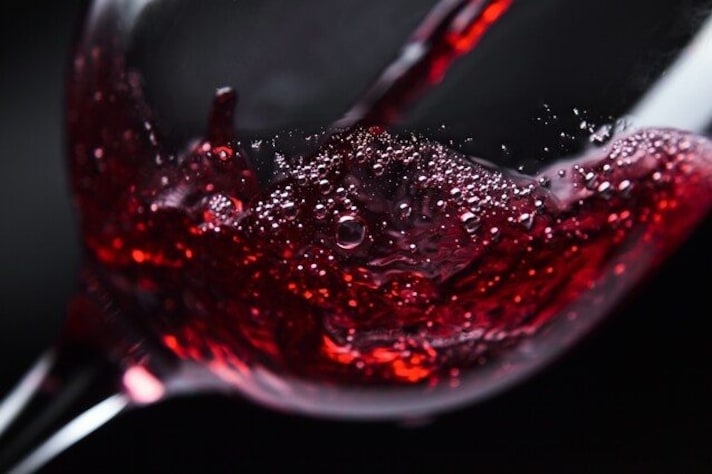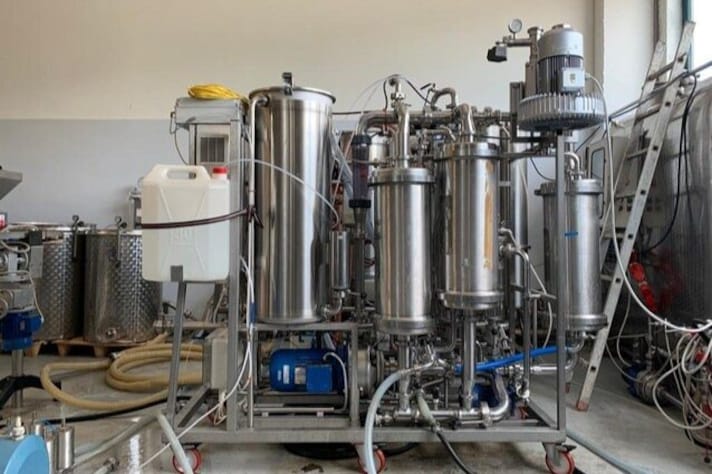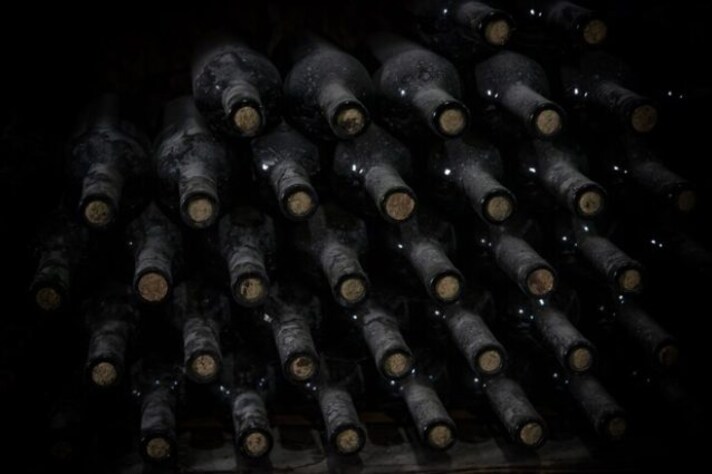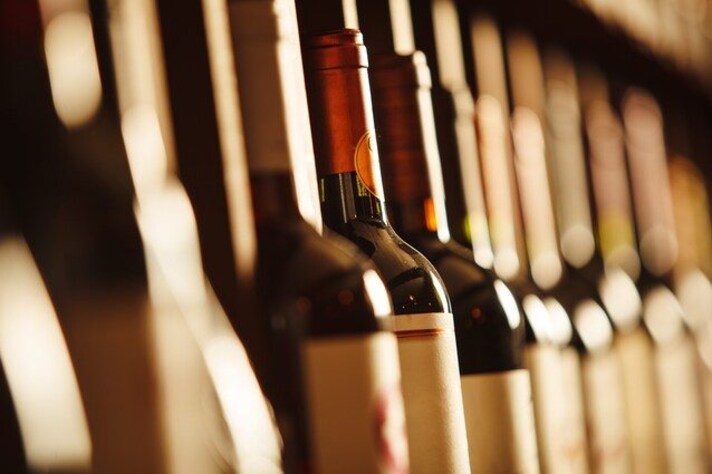
Trend, new fashion, ever-increasing market need or passion of a new consumer audience. Everyone can call it what they want, the fact is that the trend of non-alcoholic wine (a term, as we will see, still improper) is becoming increasingly popular worldwide. What are we talking about? It is very simple (at least in words, a little less so in purely technical facts): it is a product derived from wine with practically no alcohol content, or at least very low. In short, a wine from which the alcohol has been removed in its entirety or in part.
We already see wine purists turning up their noses, and given cultures linked to winemaking they cannot be blamed, but on the other side of the coin there is a progressively growing market demand. According to a study conducted in 2021 at an international level, analyzing the commercial trends of 10 countries, it emerged that the demand for drinks of this type has grown by over 6%, and it kept on growing in the following years.
"Who would ever buy and consume wine without alcohol?" someone might ask. The answer is very easy: those who, for health reasons, for example, but also religious or cultural reasons, cannot or do not want to consume alcoholic beverages. Those who follow a strict diet and cannot allow themselves to indulge, the youngest or simply those who are curious about a product that feels like a contradiction of itself.

What is Non-Alcoholic Wine?
According to many "winemakers", we are not talking about a substitute for wine, but rather an alternative. A parallel product that should not be confused with the traditional one, original if you like, but something capable of recalling it and without the side effects of alcohol.
It starts as regular wine but undergoes a process to remove most of the alcohol, typically using methods like vacuum distillation or reverse osmosis. In the U.S., for a wine to be labeled "non-alcoholic," it must contain less than 0.5% alcohol by volume (ABV), a law that mirrors regulations for other beverages like beer. Meanwhile, across the pond and elsewhere, rules can be stricter. In the EU, for instance, "dealcoholized" wine is capped at a minuscule 0.05% ABV, while anything below 0.5% gets tossed in the "alcohol-free" category. Whether it's a legal technicality or a chance to enjoy wine without the buzz, non-alcoholic wine is a growing trend, especially for those looking to have their grape and drink it too—without the hangover.
How is Non-Alcoholic Wine Made
It is not very easy, in words, to explain the process of de-alcoholization of wine. However, we will try, using terms that are as understandable as possible even to an audience of non-experts in the sector. As they explain to us, there is a special machine in which a process takes place capable of extracting alcohol, and only alcohol, from wine. A sort of evaporation takes place inside this machine: the wine is passed through a permeoselective membrane and the alcohol in this way separates from the liquid through an evaporation given by the kinetic energy of the movement of the wine itself. This is a low-temperature evaporation, not forcing with higher gradations like what happens in distillation.

Evaporation is given by the movement, by the energy released inside the de-alcoholizer. This process, in the right proportions, also occurs when the wine is swirled in the glass, with perfumes and aromas released precisely through the evaporating alcohol. Something similar is recreated, but inside a special machine. The fear of many is that water is added, this is incorrect, although abroad many producers remove water during the process, reintegrating it at a later time.
In short, de-alcoholation is a particularly complex process, and with it, half the volume of alcohol is lost compared to the original alcohol content. For example, on a 12-degree wine , approximately 6 liters of alcohol are extracted.
What Does Non-Alcoholic Wine Taste Like?
Is it like drinking decaffeinated coffee? Not quite, because whereas in decaf coffee you can mask most of the flavors with sugar or some other sweeteners, you can't do the same with non-alcoholic wine, as the absence of alcohol is perceived.
Someone might object that this new product is like a fruit juice, grape juice, but this is incorrect: at the end of the process some must is added, to give the product greater sweetness and at the same time remain within the field linked to the vine product. Why does this addition occur? Because alcohol is particularly sweet, and by removing it you get a rather bitter drink. To dampen and smooth out this bitterness you need to implement a sweetening process through, precisely, the use of must, which is particularly sugary.

At the end of it all, though, what product do we have in the bottle? What does non-alcoholic wine taste like? About 60-70% of the original aromas remain, but the perception is at 50% because without the alcohol, which is the vector that brings the aromas to our nose, it is more difficult to get them out of the glass. A muted wine, in short, in the aromas and scents, attenuated but still recognizable and perceptible. Precisely for this reason it is preferable to de-alcoholize more aromatic and perfumed wines. A Gewurztraminer or a Muller Thurgau, a Merlot speaking of reds, will be more identifiable, for example, compared to the more delicate Chardonnay or Pinot Grigio.
This is also why wines that have a certain aroma, a certain thickness, are de-alcoholized, so that they do not lose much of their structure. Precisely with regard to reds, moreover, de-alcoholization does not "cancel" the tannin, which remains, albeit softer, smoothed out compared to how it would be in the original thanks to the aforementioned addition of must. It must be said that, basically, still wines are de-alcoholized, to obtain sparkling ones, carbon dioxide is added at a later stage. As happens with carbonated drinks.
How to Store Non-Alcoholic Wine
The doubt, at this point, arises spontaneously. By eliminating alcohol, and with it also its preservative properties, does the life of the drink shorten? How long can it be kept? How can its characteristics be best preserved?
Storing non-alcoholic wine is like keeping your favorite juice in prime condition, but with a bit more flair. Once opened, it needs to chill in the fridge, sealed tightly to keep those flavors fresh—otherwise, it’ll lose its charm faster than a bad first date. Unopened, treat it like regular wine: keep it in a cool, dark place. But here’s the catch—it won’t age like fine wine. Most non-alcoholic wines are best enjoyed within a year of purchase, and once opened, you've got about 5-7 days to savor it before it starts to fall flat. So, crack it open and drink up before it ghosts you!

What's The Point of Making Non-Alcoholic Wine? Do People Even Buy It?
To those who ask why make a wine without the presence of alcohol, we answer with another question: why miss the opportunity to produce them? It would be wrong not to make them: because about 70% of the people in the world do not drink alcohol. For example, there are those who are allergic to it and therefore turn to these drinks, those who consume it for religious reasons, athletes who prefer not to drink alcohol because it certainly does not help performance.
Who wants to drive safely but not give up all the goodness of wine, because even finishing a whole bottle has no side effects. It should be drunk first of all considering it as a product of the earth, with a taste that is close to the original even if it is not an original wine.
The main markets? The American one is growing exponentially, as well as the Northern European countries. China is discovering the product in recent times and there is a lot of demand. Logically also in the Arab countries, where alcohol cannot be drunk for religious reasons, there is a lot of excitement.

Is It True, Then? Does Non-Alcoholic Wine Really Not Give You a Hangover?
Good news: non-alcoholic wine won’t leave you waking up with that dreaded "what did I do last night?" hangover! Since it has less than 0.5% alcohol (and in some cases, almost none), there’s not enough booze in it to cause the usual morning-after regrets. The headaches, dry mouth, and overall blah feeling from regular wine come from alcohol dehydrating you and messing with your system—without that, you’re in the clear. So, you can sip, savor, and sleep soundly, knowing that non-alcoholic wine won't have you reaching for the aspirin come sunrise.
;Resize,width=767;)
